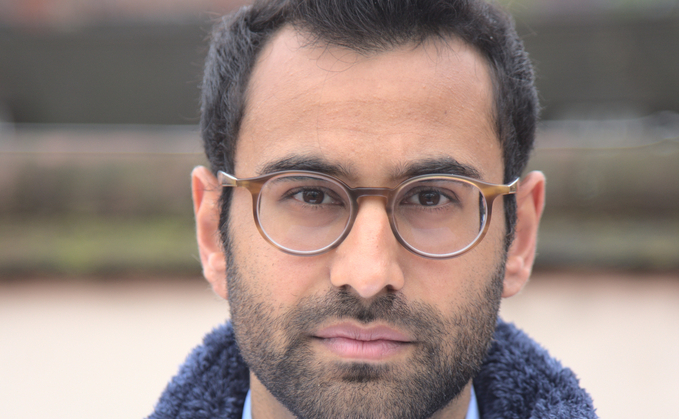
COVER talks to Dr Karan Mehta, co-founder and chief executive of new protection insurance provider, Bluezone Insurance, about launching its proposition to market, his personal motivations and adopting a “first principles” approach to life insurance underwriting.
How do you reinvent an industry like life insurance and, more specifically, its underlying underwriting process?
"Reinventing is a strong word," says Dr Karan Mehta, the co-founder and chief executive of Bluezone Insurance. "We're not trying to disregard what has been done before because they've done an incredible job. We just want to build it from first principles."
Mehta, who possesses a background in both the medical and fintech worlds, outlines the proposition for the soon-to-launch insurance provider - which will target a number of different chronic illnesses - as one firmly rooted in data, risk modelling and machine learning.
"Insurance, from our first principles perspective is all about predicting the risk of an adverse event occurring," he says. "The best way to do that is by using new data sources, large data sources and rich data sources, and also sophisticated machine learning techniques."
"The unique ability of our technology is its capability to capture the complex relationships between the risk factors and the outcome of mortality. Traditional underwriting can only take into account simpler variable relationships which have already been published in papers, but machine learning and deep learning can capture the complexity through being trained on large medical datasets."
It's those relationships between medical data, risk factors, such as blood test results, age and gender, and mortality risk that "no human can actually fully understand" which Bluezone's system turns into the "most precise premium or probability of survival and death over a long period of time."
"If you're going to be the best at risk estimation through the process of underwriting, then you also understand which behaviours can fluctuate that risk. I feel like the natural next step for the insurance industry is risk estimation and then playing a role in risk mitigation," he says.
"That's the crux of the product that we're trying to build - the best way to underwrite risk for people with chronic illnesses using machine learning and data sources."
Looking longer-term, Mehta says Bluezone will also have an app that incorporate existing behavioural change programmes which incentive users to lead healthier lifestyles, once again based on collected activity data used to "dynamically underwrite" the risk of an individual policyholder.
Personal motivation
Bluezone went public with its intentions to enter the UK market back in early May after securing £1.5 million in funding that will allow the start-up to both expand its team and launch its first product for Type 2 Diabetes life cover.
The ambition for the start-up is to become a specialist provider for chronic conditions, Mehta explains, targeting "underserved" markets where individuals with health conditions have struggled to secure life cover despite wanting to purchase the product.
Like many other start-up founders, Mehta also has a personal reason behind his firm's strategy, particularly in relation to its first product and a conversation with his Uncle, who has Type 2 Diabetes and lives in New York, revealed just how problematic securing cover can be for those with chronic conditions.
"He was rejected several times - the premiums are very expensive and you have to provide a tonne of information for the full medical reports. He was very, very frustrated with the experience of buying life insurance," he says.
"One of the trends I also observed was that the prevalence of chronic illnesses is skyrocketing. Cases of diabetes, heart disease, hypertension, high BMI are all going up, but the number of insurance policies being sold in those segments is undersold; that's why they're called underserved segments."
Mehta says he has always wanted to help people live a healthier lifestyle. His experiences as a clinician and stint with a subsequent stint with the digital health accelerator operated by Startupbootcamp afforded the opportunity to interact with Munich Re and to learn about the insurance and reinsurance space.
"I thought the best way to help people was by being a clinician, but I realised that you're kind of limited by the impact that you can make by the number of patients that are in the ward or in the practice. But there's also your fine tuning, like the doses of medication; you're treating symptoms and not the root causes," he comments.
At the age of 24 Mehta decided to leave the medical profession and build what he calls a "scalable solution" that is both proactive and treats the root causes of chronic conditions, although he also admits that at that point he had "no idea what that solution would look like."
Next steps
At present, Bluezone is in the process of finalising its reinsurance capacity and securing the required regulatory approvals that will allow the firm to sell insurance to the UK market, with Q4 this year the intended launch window. In the meantime, the start-up is also engaging parties both within and without the industry.
"We are trying to develop new and innovative channels in terms of distribution. So, we are building partnerships with charities, communities, influencers and social media platforms, as well as the traditional ways of distributing, which is with specialist brokers," he details.
Mehta says that conversations with advisers and other intermediaries on Bluezone's proposed offering have been "very open" and that they "fully understand the proposition."
Indeed, some have been involved in developing its proposition, including granting access to policyholders to provide first-hand insights into challenges they have faced when trying to buy life insurance.
Beyond the more immediate targets for Bluezone, Mehta states that the provider will expand its offering to include cover for other chronic illnesses, as well as other insurance products such as critical illness cover, income protection and travel insurance.
Beyond that, the ambition is to scale beyond the UK, although Mehta also says he is firmly focused on what's coming up in the next 12 months: "Everyone is very excited about this new product being launched, because they really see it solving a massive pain point that exists in the market."













